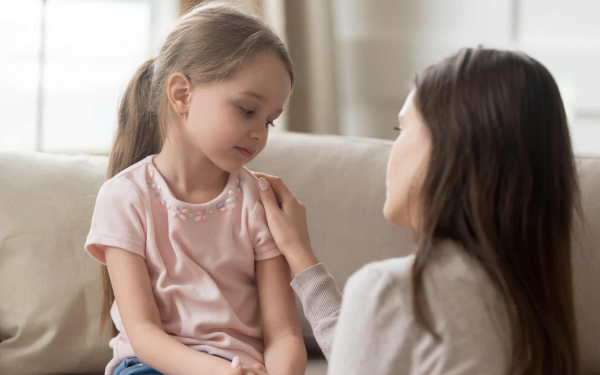By exploring the emotional landscape of grief within the foster care system, we aim to highlight the specific needs of foster children and the strategies carers can use to help them process their feelings and build resilience. Understanding these nuances allows us to tailor our approaches to support these young individuals through difficult times.
A foster carer’s role is both fulfilling and challenging, particularly when helping children navigate the complex emotions of grief and loss. This article offers practical guidance for supporting grieving children, including counselling techniques and ways to create a nurturing environment. By drawing on research and real-life experiences, we aim to equip foster carers with the tools they need to provide compassionate and practical support, ensuring every foster child receives the care and understanding they deserve.
Understanding Grief in the Context of Foster Care
Grief in foster care presents unique challenges that differ significantly from those experienced by children in stable family environments. Foster children often face multiple losses, not just the death of a loved one but also the loss of their home, community, and a sense of security. Recent data showing a decline in foster placements—from 73% to 68% over five years—suggests a shifting landscape in foster care that could worsen feelings of instability and loss. This reduction in placements may lead to more frequent moves between homes, each of which can renew feelings of grief and loss.
Studies reveal that the social and emotional impacts of transitioning out of foster care are significant. A survey found that 53% of respondents observed mixed emotional outcomes for children moving out of foster care, emphasising the complexity of their experiences. This highlights the importance of understanding how these transitions can trigger grief and the need for sensitive, informed care strategies to help manage and mitigate these emotions effectively.
The Role of Foster Carers in Managing Grief
Foster carers are crucial in managing the grief experienced by children in their care. They are often at the forefront, addressing children's immediate emotional responses to loss. Insights from a qualitative study of 22 UK foster carers highlight the emotional intensity of managing a child's transition from care. Carers must be deeply committed to the child's emotional well-being, often balancing their feelings of loss while supporting the child.
To support grieving children effectively, foster carers can adopt several strategies:
- Establishing a routine that provides stability and predictability.
- Encouraging expressions of grief in a safe environment.
- Being physically present and available to discuss the child’s feelings and memories.
- Collaborating with professionals for specialised grief counselling when necessary.
These approaches help foster children healthily process their grief and reinforce a sense of security and belonging in their new environment.
Practical Guidance on Supporting Grieving Foster Children
Supporting a grieving foster child requires a compassionate and informed approach. It's essential to recognise that grief can manifest in various ways, such as withdrawal or behavioural challenges. Identifying these signs is vital to offering adequate support and addressing their emotional needs appropriately.
Foster carers should know how to access bereavement support resources to assist grieving children better. Organisations like YoungMinds and Child Bereavement UK offer valuable guidance on grief counselling and other support services. Here are some practical steps foster carers can take:
- Engage the child in conversations about their feelings at a comfortable pace.
- Maintain a stable home environment where the child feels safe to express their emotions.
- Facilitate connections with grief counsellors who specialise in child bereavement.
Creating a supportive environment is also critical. This involves regular routines, opportunities for the child to remember and talk about the loss, and healthy integration of the memory of the lost loved one or previous life into the child's current world.
Learning from Real-Life Experiences
Real-life experiences and survey data show how children in foster care react to grief and loss in different ways. This highlights the need for care strategies tailored to each child’s needs. Studies suggest that children often mirror the grieving behaviours of adults around them, which can either help them cope with their feelings or make things more complicated, depending on what they see from others.
From these observations, foster carers can draw several recommendations:
- Model healthy grief behaviours such as expressing emotions openly and seeking support.
- Encourage children to share their feelings and memories without fear of judgment.
- Provide consistent care and reassurance to help the child build trust and security.
By learning from these real-life experiences and expert perspectives, foster carers can develop a more practical approach to supporting bereaved foster children, ensuring they feel understood and supported through their grief journey.
Conclusion: Navigating the Emotional Terrain of Grief in Foster Care
The journey through grief for children in foster care is deeply complex, involving multiple losses such as family, home, and security. This article emphasises the crucial role of foster carers in addressing these challenges. By establishing routines, encouraging open expressions of grief, and providing a stable and nurturing environment, carers can help ease the impacts of these transitions. Collaborating with professionals for specialised grief counselling is also essential for promoting resilience and emotional healing.
The insights and strategies we've discussed reflect our commitment to supporting each child’s unique grief journey. As we learn from real-life experiences and research, it’s clear that fostering the emotional well-being of children in care is a shared responsibility that demands empathy, understanding, and proactive care. Each interaction with a grieving foster child is an opportunity to validate their feelings, aid their recovery, and contribute to a brighter future. By managing grief thoughtfully, we can turn grief into a foundation for growth and stability.

